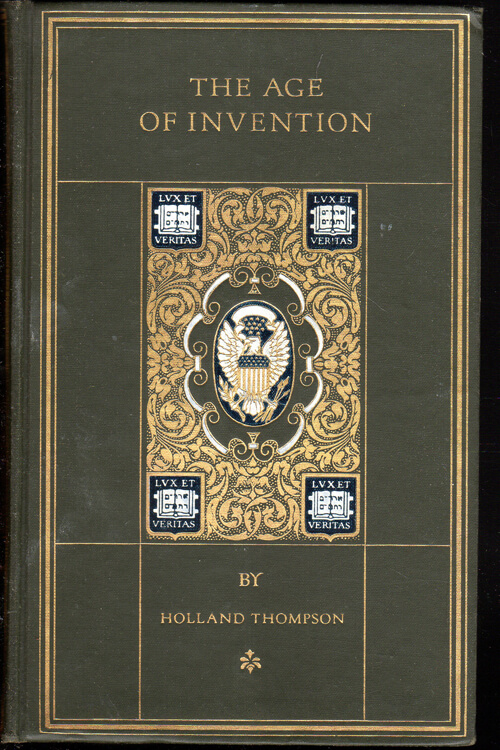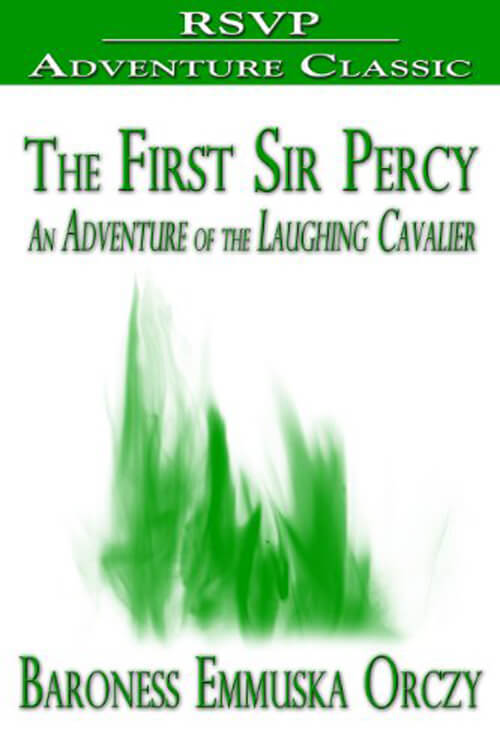
The Age of Invention, A Chronicle of Mechanical Conquest
On Milk Street, in Boston, opposite the Old South Church, lived Josiah Franklin, a maker of soap and candles. He had come to Boston with his wife about the year 1682 from the parish of Ecton, Northamptonshire, England, where his family had lived on a small freehold for about three hundred years. His English wife had died, leaving him seven children, and he had married a colonial girl, Abiah Folger, whose father, Peter Folger, was a man of some note in early Massachusetts.
Josiah Franklin was fifty-one and his wife Abiah thirty-nine, when the first illustrious American inventor was born in their house on Milk Street, January 17, 1706. He was their eighth child and Josiah’s tenth son and was baptized Benjamin. What little we know of Benjamin’s childhood is contained in his “Autobiography”, which the world has accepted as one of its best books and which was the first American book to be so accepted. In the crowded household, where thirteen children grew to manhood and womanhood, there were no luxuries. Benjamin’s period of formal schooling was less than two years, though he could never remember the time when he could not read, and at the age of ten, he was put to work in his father’s shop.
Benjamin was restless and unhappy in the shop. He appeared to have no aptitude at all for the business of soap making. His parents debated whether they might not educate him for the ministry, and his father took him into various shops in Boston, where he might see artisans at work, in the hope that he would be attracted to some trade. But Benjamin saw nothing there that he wished to engage in. He was inclined to follow the sea, as one of his older brothers had done.
His fondness for books finally determined his career. His older brother James was a printer, and in those days a printer was a literary man as well as a mechanic. The editor of a newspaper was always a printer and often composed his articles as he set them in type; so “composing” came to mean typesetting, and one who sets type is a compositor. Now James needed an apprentice. It happened then that young Benjamin, at the age of thirteen, was bound over by law to serve his brother.
James Franklin printed the “New England Courant”, the fourth newspaper to be established in the colonies. Benjamin soon began to write articles for this newspaper. Then when his brother was put in jail, because he had printed matter considered libelous, and forbidden to continue as the publisher, the newspaper appeared in Benjamin’s name.
The young apprentice felt that his brother was unduly severe and, after serving for about two years, made up his mind to run away.
Secretly he took passage on a sloop and in three days reached New York, there to find that the one printer in the town, William Bradford, could give him no work. Benjamin then set out for Philadelphia. By boat to Perth Amboy, on foot to Burlington, and then by boat to Philadelphia was the course of his journey, which consumed five days. On a Sunday morning in October 1723, the tired, hungry boy landed upon the Market Street wharf, and at once set out to find food and explore America’s metropolis.
Read or download Book
Holland Thompson
Holland McTyeire Thompson (July 30, 1873 – October 21, 1940), was an American historian who wrote about the New South.
Early life
Thompson was born in Randolph County, North Carolina. He graduated from the University of North Carolina.
Career
Thompson served as a high school principal at Concord High School in Concord, North Carolina from 1895–99, where he wrote an essay about the transformation of southern culture from a rural agricultural to textile/manufacturing way of life that he witnessed while an educator in Concord. This essay, in part, gained Thompson’s admittance to Columbia University where he received his Ph.D. in 1901 and became a full professor of history at City College of New York.
Thompson, while a professor at CCNY, was among the leading scholars/historians of the social and industrial transformation of the New South in the early decades of the 20th century.
Personal life and death
Thompson married Isobel Graham Aitken of New York in 1905. They had one son, Lawrence. Thompson died on October 21, 1940.
Works
- From the Cotton Field to the Cotton Mill: A Study of the Industrial Transition in North Carolina (1906). New York: Macmillan.
- The New South: A Chronicle of Social and Industrial Evolution Yale Chronicles of America Series (1919). New Haven: Yale University Press.
- The Book of History: The World’s Greatest War, From the Outbreak of the War to the Treaty of Versailles (1920-1921). New York: Grolier Society.
- The Age of Invention: A Chronicle of Mechanical Conquest (1921). New Haven: Yale University Press.
- Canada–Newfoundland–Canadian Parks (1940). New York: Grolier Society.
- England–Wales (1940). New York: Grolier Society.
- North and South Poles: Eskimos, Indians (1940). New York: Grolier Society.
- Scandinavia–Finland–Iceland (1940). New York: Grolier Society.
- South America (1940). New York: Grolier Society.






